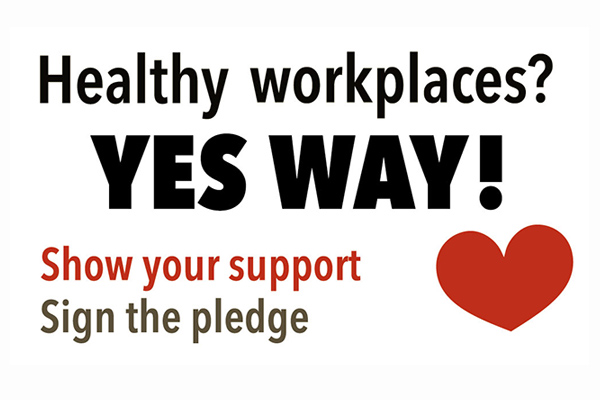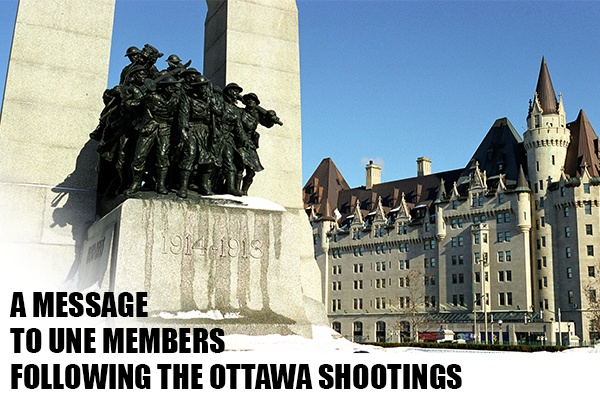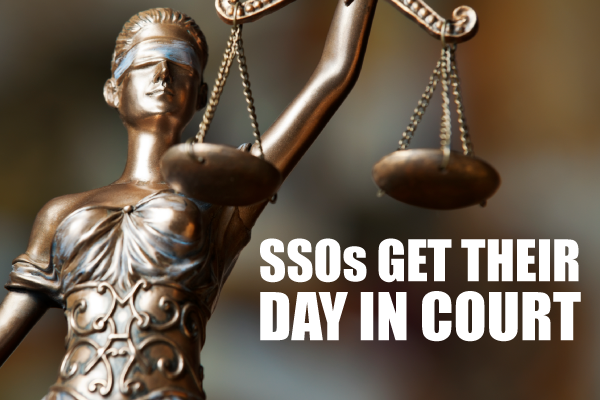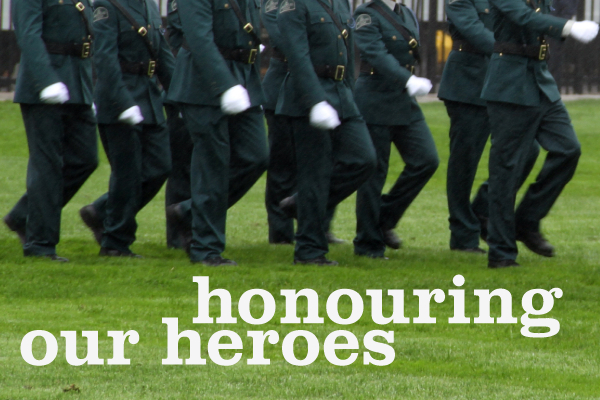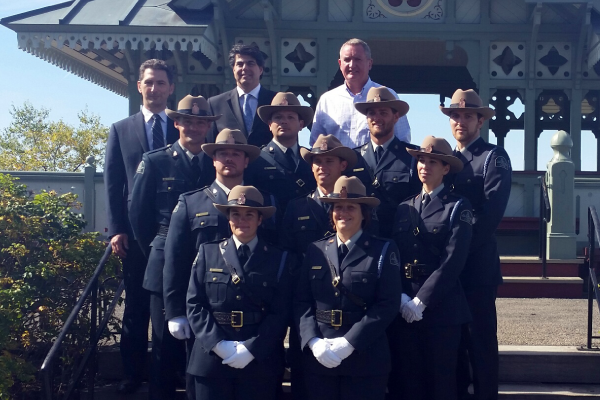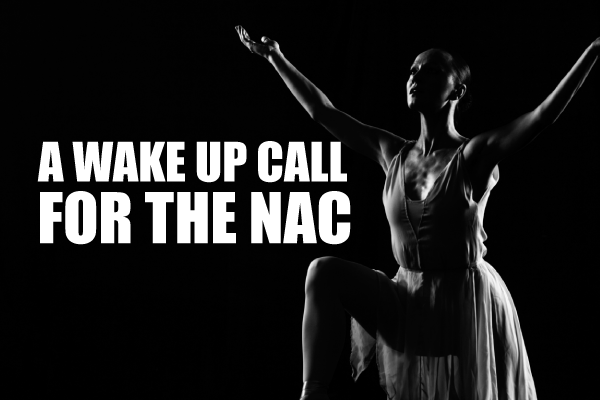
In their heyday, Labour Day parades were a sight to behold. People lined the streets to see floats that stood as monuments to workers’ individual contributions to society. This was a day when plumbers marched alongside firefighters, in a show of unity among the working class.
But Labour Day parades have always had to compete with one of its main goals: getting time off for leisure. Indeed, for many Canadians, Labour Day is more synonymous with a long relaxing weekend at the cottage than with the labour movement.
“The tension was built at the very beginning,” explained Professor Craig Heron, who teaches history at York University. “It was a celebration of labour that had an implicitly political twist and a day of pleasure.”
“How you keep those things working together is obviously an issue.”
Heron points out that Labour Day was alive and well before Parliament made it an official holiday. In The Workers’ Festival, a book he co-authored with Steve Penfold, Labour Day parades are traced back to the early 1880s, years before the day was officially recognized at the federal level in 1894.
“It was first celebrated in Toronto in 1882, Hamilton and Oshawa in 1883, London and Montreal in 1886, St.Catherines’ in 1887, Halifax in 1888, and Ottawa and Vancouver in 1887.”
Back then, workers were simply asking their local municipality to declare the day a civic holiday.
“Then they would just celebrate it. Workers would take the day off,” explained Heron. “In 1894, [Parliament was] just putting the legal stamp on a fait-accomplit.”
That precious time off was all the more important at the end of the 19th century, when workers didn’t have vacation time – when Saturday was part of your workweek.
“The one-day holidays – Victoria Day, Dominion Day and an August holiday in some parts of the country – those were your only holidays.”
Ultimately, Heron sees the movement for paid vacation as an extension of that initial request for the fall holiday.
With so little time off, Labour Day parades had stiff competition from the get-go. It wouldn’t take long for union leaders bemoan the fact that many chose to spend that day of leisure at the local tavern or pool hall instead. Soon, the labour movement would be competing against a host of other options for holiday fun, where market forces sought to fill a void.
Nonetheless, the parade would draw an impressive crowd. Onlookers could get a glimpse of a craftsman’s work and his tools of the trade. For workers, it was a chance to present themselves as essential cogs in a society of producers. For unionists, it was a show of force for the labour movement – one they hoped would draw more workers into their ranks.
But that would change over the years.
“Labour Day evolved,” explained Heron. “What Steve and I wanted to emphasize in the book was how it was reinvented a number of times.”
The parades of the 1940s were characterized by what Heron referred to as “a much sharper edge” – with fiery protests more akin to today’s May Day demonstrations. After the Second World War, there was an attempt to merge activism with old traditions.
“You’d put on a show that drew on the cultural elements that people expected to see in a parade; you added the clowns, you added the pretty girls in the short skirts,” explained Heron. “Those elements that now look frivolous to us, they co-existed alongside floats that asked ‘What’s going to happen as a result of automation?’ and ‘We need Medicare!’”
Gradually, as the labour movement entered more tumultuous years in the 1970s, the frivolous elements were dropped in favour of more protest activities.
Despite this state of flux, one thing remained constant: Labour Day parades were a grassroots effort, usually led by a local labour council.
In Ottawa, the Labour Day parade is organized by the Ottawa District Labour Council. With the big day just a few days away, Labour Council President Sean McKenny’s voice is already ringing with pride and excitement.
“Everything is free,” said McKenny, urging everyone to attend the festivities. “We have hot-dogs, corn on the cob, bags of chips, soft-drinks and juice for folks – we have a bouncy castle and pony rides.”
Ottawa has been home to a Labour Day parade for well over a century. In recent years, the festivities have followed a standard formula: everyone meets at city hall and marches to a nearby park, where the fun continues.
The event, McKenny contends, puts the emphasis on family and leisure over activism and protest.
“One of the things that we often say around here is ‘we have 360-some-other days of the year to protest and rally; this is a day when we’re going to enjoy ourselves and celebrate all our hard work throughout the year.”
McKenny argues that in Ottawa, the parade is far from dying out. After being involved with its planning for over 20 years, he says the level of participation has undoubtedly increased. Moreover, he hopes that the family-focused attractions will act as an extension of the Canadian Labour Congress’ campaign, which aims to paint a different portrait of unions – one that counters public perceptions of union members as radical and constantly being on strike.
In this vein, Labour Day festivities continue to be an important communications vehicle. In Heron and Penfold’s book, the authors declare that parades “were intended to convey powerful symbolic, largely non-literate messages about appropriate social and political values and acceptable social relationships.”
“In the 1880s-1890s, there were parades all the time in the streets,” explained Heron. “It was a way of communicating. You expected to see parades; you went and watched them. What was on display there, in terms of what people looked like, how they dressed, how they organized themselves, what they were carrying, what they were showing off – all of that was a mode of communicating to the crowd that was watching.”
But in the digital age, where messages can reach a broader audience regardless of their proximity to a downtown core, is there still a place for parades? Could resources be more wisely invested elsewhere?
Professor Heron contends that there is still something very powerful and visceral about people getting together for a public demonstration.
“I think this is part of the debate that everyone is having about social media,” he responded. “It’s a debate we’re having at the university level about online courses – what’s the value of bringing people face-to-face for anything?”
Instead of replacing the act of taking to the streets altogether, social media can be used to bolster that act. Professor Heron pointed to both Occupy and Idle No More as great examples of movements that used these tools effectively to garner more boots on the ground.
“There’s incredible power in having people standing together, walking together, finding each other in a face-to-face environment,” he added. “It can’t be experienced any other way.”
“It does make people feel proud and powerful and capable of greater things. That’s why I think, again and again, in strike situations and in protests, people come back to it as a way to show to the world that there are people who care and feel some solidarity.”
__________________
If this article has inspired you to get involved in your local Labour Day Parade, please contact your local labour district council. In Ottawa, they’re hoping to recruit another 10-20 volunteers.
This article relied heavily on information found in Craig Heron and Steve Penfold’s book, The Workers’ Festival: A History of Labour Day in Canada. Professor Heron is the author of several books on the Canadian labour movement, including The Canadian Labour Movement: A Short History. Incidentally, that book features a few UNE members on the cover!
Thank you to both Professor Craig Heron and ODLC President Sean McKenny for taking the time to speak with us.
